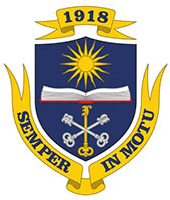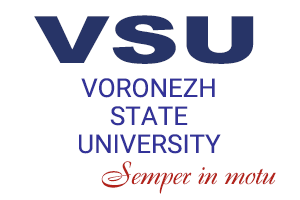Voronezh State University continues its tradition of inviting famous scientists, influential politicians, and media personalities. On 8 November, a meeting between the university’s administration, staff, and students and a large delegation from Hungary was held in the conference hall of Voronezh State University. The Hungarian delegation was headed by the Ambassador Extraordinary and Plenipotentiary of Hungary to the Russian Federation, Janos Balla.
At the beginning of the event, Professor Dmitry Endovitsky gave a short overview of the history of Voronezh and Voronezh State University and was proud to tell the guests that VSU is alma mater for the first Soviet Nobel Prize laureate in Physic, Pavel Cherenkov, and many other politicians and cultural leaders of the world.
‘Today, our university is steadily developing. We have been included in prestigious international rankings. Besides educational and research activity, our university is involved in the commercialisation of its innovations. Last year, the Government of the Voronezh Region recognised VSU as the best innovative university of the Voronezh region. VSU is engaged in active cooperation with many international organisations. We have about 120 active agreements with universities from all over the world. Special attention is paid to our relationships within the European Union. Currently, we are running 25 EU projects: Tempus, Erasmus+, and Erasmus Mundus, including an academic mobility project with the University of Debrecen. I would like to emphasise that there is no other city in Russia that to the same extent would be entitled to the right for cooperation and friendship with Hungary. All of us remember the dark periods of our common history. For Hungarians, the word “Voronezh” is a synonym for a national disaster. We remember what happened then and do our best to turn the page and start a new history of relations between our nations, a history of cultural, research, and business cooperation,’ said Dmitry Endovitsky. He also gave examples of successful collaboration with many international companies that have opened corporate centres in VSU.
In his response, Mr Balla thanked the students for their interest in cooperation and told the audience about the thousand year old history of Hungary and the development of modern-day Hungary.
‘The European Union is our ‘home’ from an economic, political, and cultural point of view. Today, Hungary attracts investment and supports the policy of developing cooperation with its partners. We have had very strong relationship with Russia and our aim is to create an environment for productive cooperation. Hungary is a loyal member of the European Union. Of course, we shouldn’t forget about the tragic periods of the common history of our nations. However, we are open for cooperation, and thus we have succeeded in overcoming all the difficulties and were able to give momentum to the dynamic development of our relationships in all areas. I would like to emphasise that from the political point of view the relationships between Hungary and Russia are developing at the highest level. Fortunately, the project with the University of Debrecen is not the only example of our bilateral relations. We can see a lot of interest in the Hungarian language and culture not only in Moscow and Saint Petersburg by also in Izhevsk and Nizhny Novgorod and that is why we created the so-called “cultural points”. At the moment, there are 11 centres of this kind all over Russia’ said Mr. Balla.
The theme of cultural cooperation between the two countries was continued by the Head of the VSU Culture Centre, Tamara Diakova. She gave a talk about the cultural relations between Russia and Hungary today.
‘Today, VSU is building long-term relations in the area of education, research, and culture with its Hungarian partners. We organise internships for Hungarian students, exchange programmes for academic staff, and hold conferences with the participation of our Hungarian colleagues. We also publish papers in Russian and Hungarian scientific journals,’ said Tamara Diakova.
At the end of the meeting the students had a chance to ask questions to the Ambassador.
‘It is a well-known fact that Hungary has a long tradition of studying the history, culture, and languages of the Finno-Ugric peoples of the Russian Federation. What do you think can encourage cooperation between Russia and Hungary aimed at studying their common ethnic and language history?’
Janos Balla: ‘Every year, the Hungarian Government provides 200 allowances for Russian students to get free education in Hungary. The Russian coordinator of this programme is the University of Petrozavodsk. We are interested in distributing all the allowances each year. It is a very important initiative. I would also like to emphasise the importance of meetings in the Russian regions where we are equal as partners. Relations with Russian provinces mean a lot to us because Moscow and Saint Petersburg are a worlds apart from them. The third component is constantly keeping in touch with the representatives of Finno-Ugric peoples who live within the Russian Federation: Karelia, Bashkiria, and the Khanty-Mansi Autonomous Area.’
Dmitry Endovitsky: ‘There is also the forth component. I mean the international companies that enter the Voronezh region. The appearance of the Hungarian businesses will also encourage students to learn the Hungarian language and culture because it will have practical meaning for them.’
‘How do you evaluate the prospects for cooperation between the Russian Federation and Hungary in the area of research and higher education?’
Janos Balla: ‘I would like to highlight four areas where I can see possibilities for the cooperation development between our countries: economics, especially in the agricultural industry, pharmaceutics, machine building, and energy. As for education, I would like to point to sciences related to pharmaceutics and nuclear energy. A number of pharmaceutical companies have already come to Russia and are very interested in the Russian market. What’s more, Hungary has been a long-term partner of Rosatom in various research projects.’
‘What is the attitude of Hungary to its socialist period in the history and how does it interact with former socialist states?’
Janos Balla: ‘After the political changes, Hungary has experienced a long transfer period that ended in 2011 with the adoption of the Constitution. The Constitution states that the period of communism in Hungary is over. The Committee of National Remembrance has been founded. It studies and investigates events of the past. Our task today is not to repeat the mistakes of the past and to study them using genuine and sound sources.’
‘Russian society is quite surprised to see the strengthening of Euroscepticism. What is the attitude of the Hungarian society to these processes?’
Janos Balla: ‘The problem lies not within the agreement of major European states to create a union with free flow of capital, workforce, and services within the union. From our critical point of view, the problem is caused by a deviation that is taking place in the EU. Sovereignty is a very important component of the cooperation in the EU which has been violated over a number of years recently . The European officials have lost touch with the basic values that were the foundations of the European Union. One of those values is Christianity. I think this is the main area. The EU is experiencing a crisis of self-determination and now we are ready to go back to the very beginning of this and the basic questions: “How did we create the union?” and “What were our aims when we created it?”’
After the event the guests and all the students could enjoy a performance by the folk music group Terem who sang songs of the Voronezh region. They could also take part in a Hungarian dance masterclass conducted by the folk group, Sarkalab and Rezeda.
































